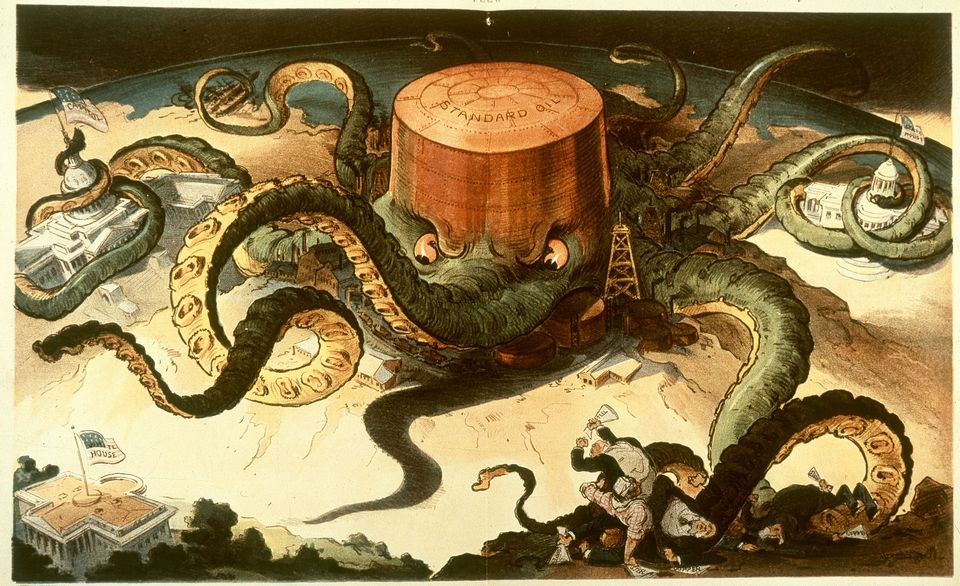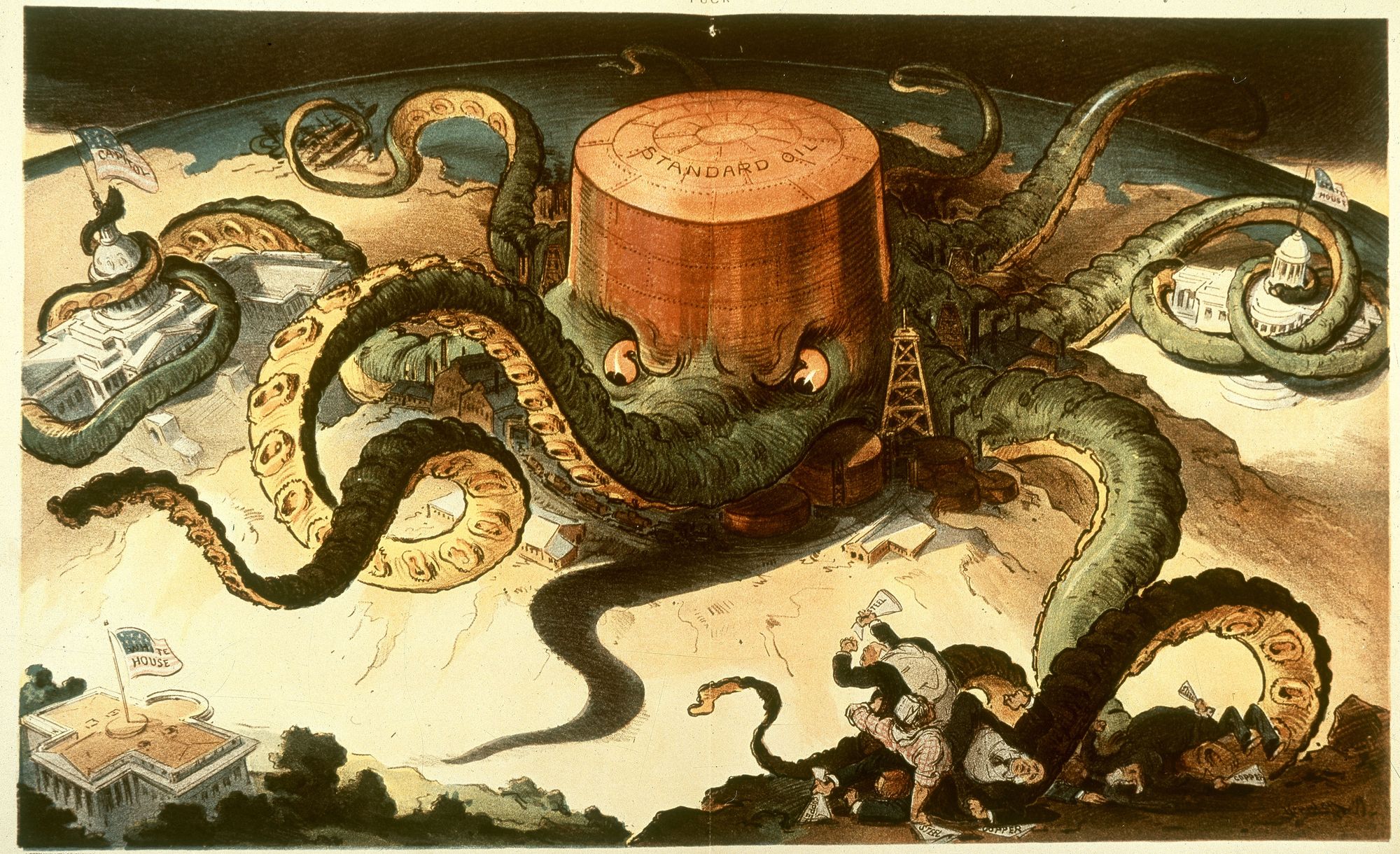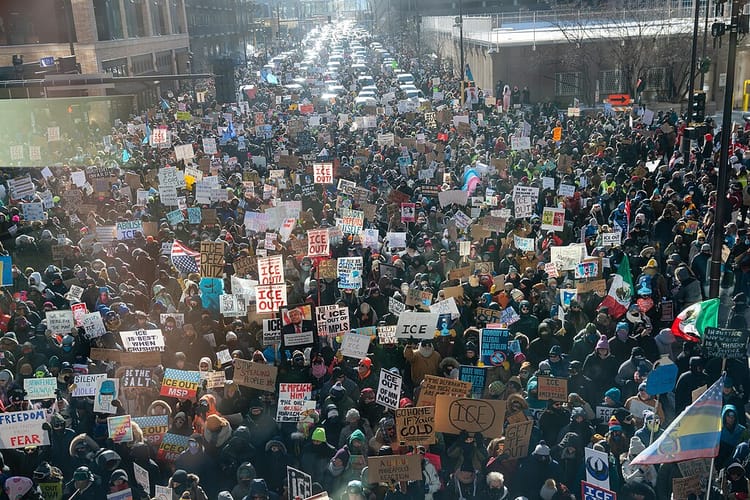Moving Past Climate Denial

The history of climate denial is such a gripping story, isn't it? Some distinct group of people knew that society was on a collision course with nature, had the information needed to course-correct and instead chose to drive society toward collapse. There are good guys and bad guys, absolutely clownish villains, outrageous lies and a horrible, murderous outcome...a crime, as I've been saying for several years. I caught the bug too, that's why the first season of Drilled was about climate denial. But pretty quickly I realized that this strategy would never have worked, or at least never have worked so quickly and so well, had it been the first PR strategy the industry embraced.
It's been eight years now since the Exxon Knew story broke. And since then we've gotten Shell Knew, GM Knew, Total Knew, and Eni Knew stories. It's no wonder the industry has shifted its tune from "the science was inconclusive" to "well everybody knew! we're all in this together." And while yes there's been a bit of a resurgence of old-school climate denial, particularly in the form of claims that extra CO2 in the atmosphere will actually be a good thing, its proponents are a vocal minority; very vocal, yes, but also a truly tiny minority.
So why is media still so obsessed with this story? And why do the same basic misunderstandings continue to be repeated and amplified? It's been well documented for years now, for example, that the commonly held belief that all of Big Oil's strategies were worked out by Big Tobacco first and then copied is not really what happened. In fact it was the PR industry that developed these tactics in the early 20th century, working on behalf of tobacco, coal, oil, rail, steel, food, and eventually chemicals and automotive—particular firms and practitioners were the connective tissue between these industries, often working for all of them at once and passing ideas between them freely. They borrowed ideas from each other, too. John Hill's idea for the Tobacco Industry Research Committee, for example, was almost certainly inspired by his idol Ivy Lee's work creating the Bureau of Railway Economics for his rail clients. And while it's certainly true that oil companies borrowed ideas and even personnel from the tobacco companies, that flow worked in the opposite direction, too. Daniel Edelman, Edward Bernays, John Hill, and E. Bruce Harrison all worked for both tobacco and oil clients. I'm not quite sure how the fact that oil companies were co-defendants in most of the tobacco litigation has been erased from our collective understanding of that period of history, but they were there side-by-side the whole time, not just because gas stations were the top retailer of cigarettes, but because it was fossil fuel companies that came up with the idea for the cigarette filter. (You can read, or listen, to more about that here).
To get a complete picture of why no government has acted appropriately on climate change, we can't just look at one tactic deployed in the recent past, we need to zoom out and get a broader understanding of the entire problem I like to call information pollution. Yes, yes, disinformation but it's not just that, it's also a structural warping of our information ecosystem, from meddling with how media works to constitutional changes that make corporate fraud more likely. There's this old illustration of Standard Oil from the Progressive era when it was being accused of antitrust behavior that I sort of always have in mind when I think about this stuff, because (with all respect to our octopus overlords) when it comes to climate obstruction what you're up against is a multi-tentacled beast.

It includes the PR industry, the capture of academia, law firms and lawfare, management consultants, think tanks, lobbyists, and the finance sector. And they use a lot of different tactics, tools and strategies, only one of which is science denial. I'm not entirely sure what it will take to tame that beast, but I do know if we only focus on one leg, the others will choke us.
News from Around the Climate Sphere
I get loads of pitches from various organizations doing very interesting and important work on climate. I can't possibly cover them all, but I can at least share them here, which I plan to do from time to time. Here are a few things that seemed worth putting on your collective radar:
- Institute for Strategic Dialogue report on the intersection between wellness influencers and climate disinformation. Fascinating report and also these regular data monitors from Climate Action Against Disinformation (which is how I saw the report) are very worth signing up for!
- DOE Methane Framework Misses the Mark - Earlier this week I got an email from the folks at Oil Change International about the U.S. Department of Energy's new international working group to develop a framework for the measurement, monitoring, reporting, and verification (MMRV) of methane, carbon dioxide, and other greenhouse gas emissions from gas. Here's what OCI said: "They claim this effort will reduce global emissions. But the U.S. Department of Energy-led framework will not require producers to make or keep pledges to reduce their overall production of oil and gas and, as a result, will be weaponized by the fossil fuel industry to justify increased production. As currently envisioned, this voluntary framework would rely on unreliable, easily manipulated, opaque technologies that have not shown they can be trusted to adequately measure the emissions from oil and gas operations. As countries move toward setting standards for methane emissions on imported oil and gas – as the European Union reached a deal to do on Wednesday – it is all the more important that oil and gas companies’ claims can be rigorously, independently and transparently verified."
- New Report from GAIA and Break Free From Plastics Exposes Plastic Credits As a Sham – If you, like me, saw this and went "wait, there are plastic credits now too?" it's time to read up on this issue! This report will help you do just that, and surprising no one they're as big a scam as carbon offsets have turned out to be.
This Week's Climate Must-Reads
- A celebrated startup promised Kentuckians green jobs. It gave them a ‘grueling hell on earth.’ (By Austyn Gaffney for Grist and the Kentucky Center for Investigative Reporting.) - The incredible story of of how AppHarvest's indoor farming scheme imploded, and took its blue-collar workforce down with it.
- This Oil Company Wants Your Money, Your Prayers, and Your Support for Israel (By Kate Aronoff for The New Republic). Prosperity gospel, but make it Zionist. That's the gist of this wild read from the great Kate Aronoff, about a company called Zion Oil & Gas, that ascribes to the evangelical belief that Israel will be the site of the “Battle of Armageddon” once it is maintained as a Jewish state, at which point Jews will survive long enough to have the opportunity to accept Jesus, or perish along with the other non-Christians. (speaking of which, the QAnon Anonymous podcast has an excellent episode on this belief system and Congressman Mike Johnson, the newly minted speaker of the House, who ascribes to it).
- McCann To Make New Pitch for Aramco Oil and Gas Advertising Work (by Sam Bright for DeSmog) - One of my favorite bits of fossil fuel ad trivia is that McCann Erickson created a whole separate internal agency to work on Aramco's work. It's called Well 7 after Aramco's original oil well. Now they're being asked to pitch to keep Aramco's business, which is interesting for a few reasons, the biggest one being that this will test McCann's new climate-vetting process. For new clients and any pitches, the agency runs the business through a climate checklist and turns down work it deems to be too much of a climate killer. The agency opted not to take on Adnoc's rebrand last year, for example. Aramco had already been a client before this new process was implemented and existing work didn't have to be vetted, but now that it has to pitch again, all bets are off.
- Nations Made Bold Climate Pledges. They Aren't Close to Meeting Them. (by Maxine Joselow for The Washington Post) A depressing read but a really necessary one as we head into the blitz of COP28 press releases and promises.
- Cop28 host UAE breaking its own ban on routine gas flaring, data shows (by Damian Carrington for The Guardian) - And speaking of an important read in the run-up to COP28 this is a doozy. State-run oil and gas fields in the United Arab Emirates have been flaring gas virtually daily despite having committed 20 years ago to a policy of zero routine flaring, satellite data reveals.





